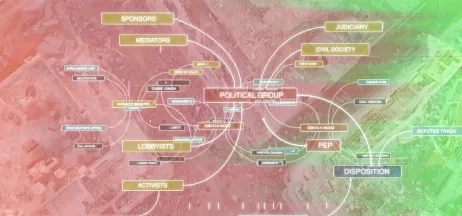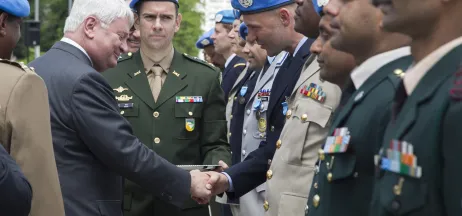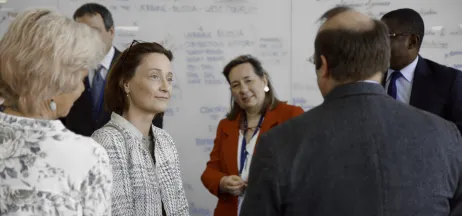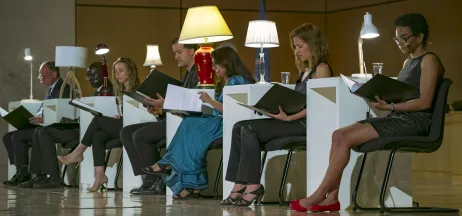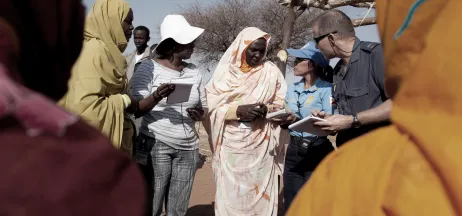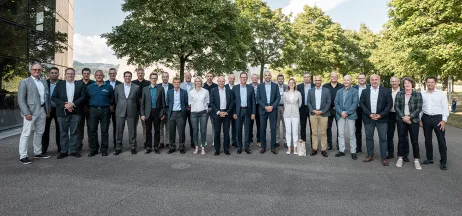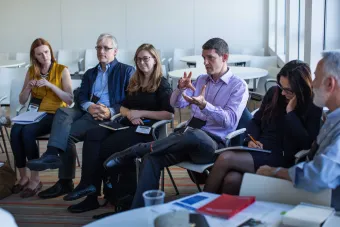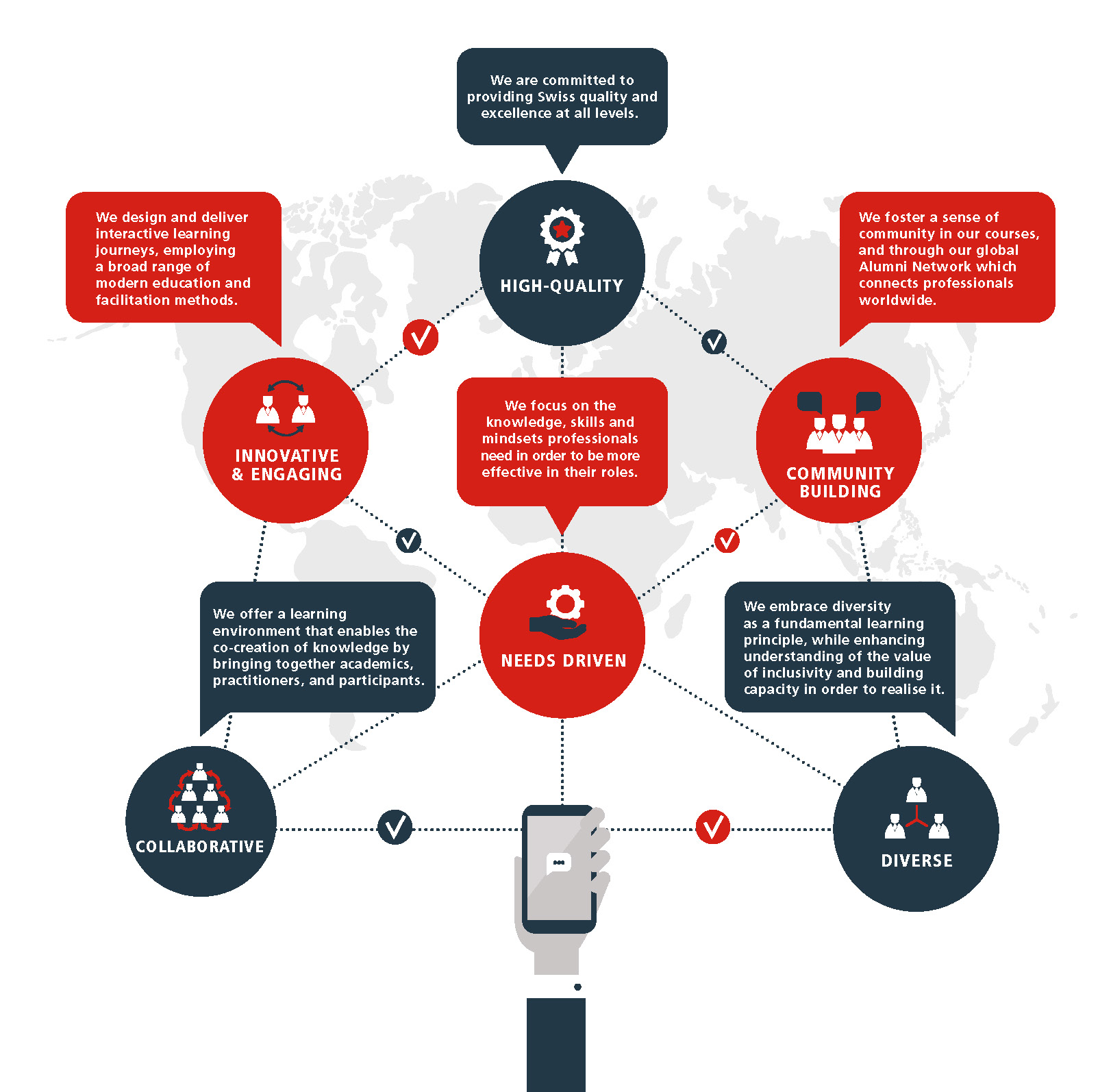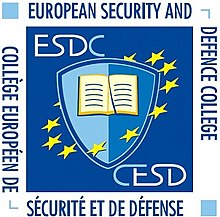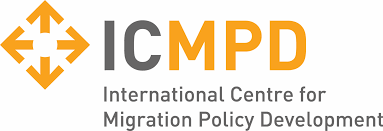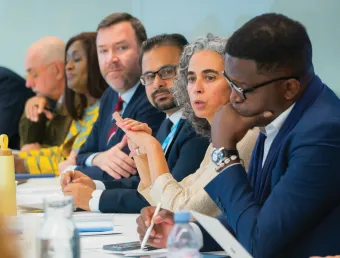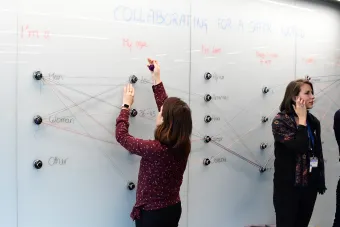What does the Creative Spark offer to its members
In a turbulent and polarizing world, the GCSP Creative Spark leverages the ‘Esprit de Genève’ and the Swiss values of impartiality, inclusiveness and independence, as well as Geneva’s position as a hub of global affairs in peace, security, health, human rights, humanitarian, trade and finance. Fellows have a unique risk-free space to test ideas, innovate and gain a holistic view of security challenges by gathering feedback from experts with broad perspectives. They are able to connect to and collaborate with people across sectors and break down silos of knowledge, expertise, methodology and experience, to strengthen ideas and develop policy and practices advancing sustainable peace and development. Fellows contribute to and benefit from the GCSP’s leading education environment. They are able to learn about and integrate the most innovative tools in leadership, education and strategic policy development.
The Creative Spark offers applicants presenting promising ideas with a high likelihood of generating sustainable impact on international peace and security an up to 12 months programme, where the GCSP provides targeted support to convert innovative efforts into reality. This includes but is not limited to office space, business & marketing strategy services, business operation, legal support, media marketing services, accounting and financial management, training, networking opportunities and seed funding.
Currently incubated project in the Creative Spark:
| | |
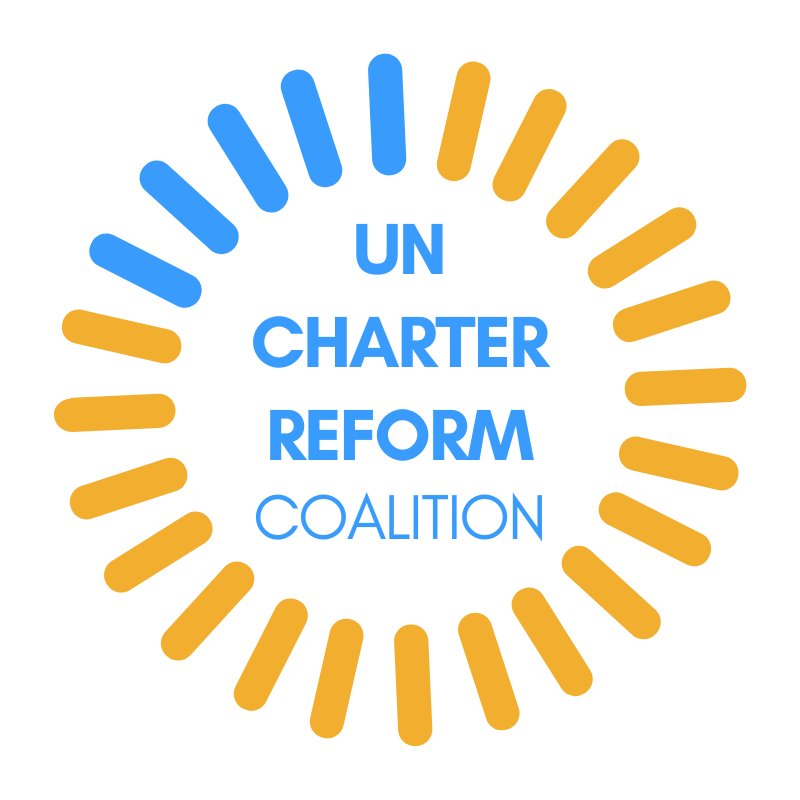 | The UN Charter Reform Coalition mobilizes United Nations Member States to revise the UN Charter such that it is better equipped to address today’s challenges; is empowered to deliver on the UN’s principles; and more equitably distributes power. |
| | |
Equity 4 Humanity ("EH4") | E4H is creating an integrated systems model for financing development and associated project coordination to support peace and security for all. |
| | |

| UNaccountable is a social enterprise that works for more effective, accountable and impactful multilateral engagement and consensus-based international cooperation. Its project incubated at the GCSP works to create a public interest organization in the form of a foundation. The foundation will provide a coherent and clear accountability mechanism for a highly complex multilateral system, accessible to all. |
| | |
Some of the ideas that the Creative Spark helped develop are the following:
 | A public-private partnership, GCERF was established to serve as the first global effort to support local, community-level initiatives aimed at strengthening resilience against violent extremist agendas. Operating at the nexus of security and development, GCERF is committed to working in partnership and consultation with governments, civil society, and the private sector in beneficiary countries to support national strategies to address the local drivers of violent extremism. |
| | |
 | The Climate Action Accelerator (CAA) is a new, non-profit initiative, launched with the aim to mobilise large-scale climate action. Its goal is to help as many organisations as possible to directly halve their emissions by 2030, in line with the Paris Agreement. Learn more |
| | |
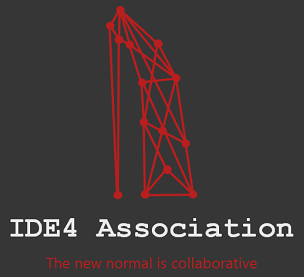 | IDE4 is a non-profit association established with a distinct mission: to propel the domains of data analytics and visualization in service to academia, International Geneva and the SDGs. By cultivating a dynamic ecosystem of developers, institutions, and enthusiasts, IDE4 promotes open-source solutions, particularly their innovative visual analytics platform, CSX, conceived at CERN. |
| | |
 | MAP is a creative consulting and talent agency representing top media and arts professionals from conflict zones and diaspora communities. They train and consult on the strategic application of media and arts for transformational social change. |
| | |
 | Cyber-aid is a people public private collaboration on cyber-security, artificial intelligence and digital. They help individuals, companies and municipalities learn about new technologies, anticipate changes together and adapt and grow. |
| | |
 | Developed at the Stimson Centre and recipient of the first edition GCSP Transformative Futures in Peace and Security Prize, the GGIN's new Global Governance Innovation Project (GGIP)– consisting of an annual Global Governance Innovation Report, Index & Survey – was incubated in the Creative Spark in the beginning of 2024. The GGIP explores and measure progress in global governance, including by carefully comparing national leadership within multilateral institutions and assessing their change over time. The project also examines the growing capabilities of new voices, tools, networks, knowledge, and institutions in global governance—to better cope with a variety of 21st century challenges. Thanks to the incubation in our Creative Spark, the project leaders refined their concept through collective intelligence and built up their network in International Geneva with, inter alia, two events held at the GCSP: an informal breakfast with Civil Society Representatives and Scholars and a high-level round table with UN Member States on Collective Security and the Universality of Conflict Prevention. |
| | |
 | The Foundation for Humanitarian Action at Sea aims to mitigate the global humanitarian crisis at Sea by facilitating high-level dialogues, coordinating research and advocacy on maritime migration routes, and expanding Search and Rescue (SAR) operations at a global scale. |
Do you have an innovative idea to generate sustainable peace and security? Do you need help to make it a reality?
What does the Creative Spark offer its partners
With our 25 years’ experience in the fields of peace and security, we help our partners identify promising forward-looking solutions and transformational ideas for a more peaceful future. We know the needs and challenges in these fields and we therefore are able to assess for you the most innovative and impactful projects that will make their mark and change the trajectory of the future.
Do you want to have an impact on peace and security? Do you want to leave your mark on history?
Contact us to discover our tailored partnership solutions!
Don't have a project yet? Join our Global Fellowship Initiative! Learn more



